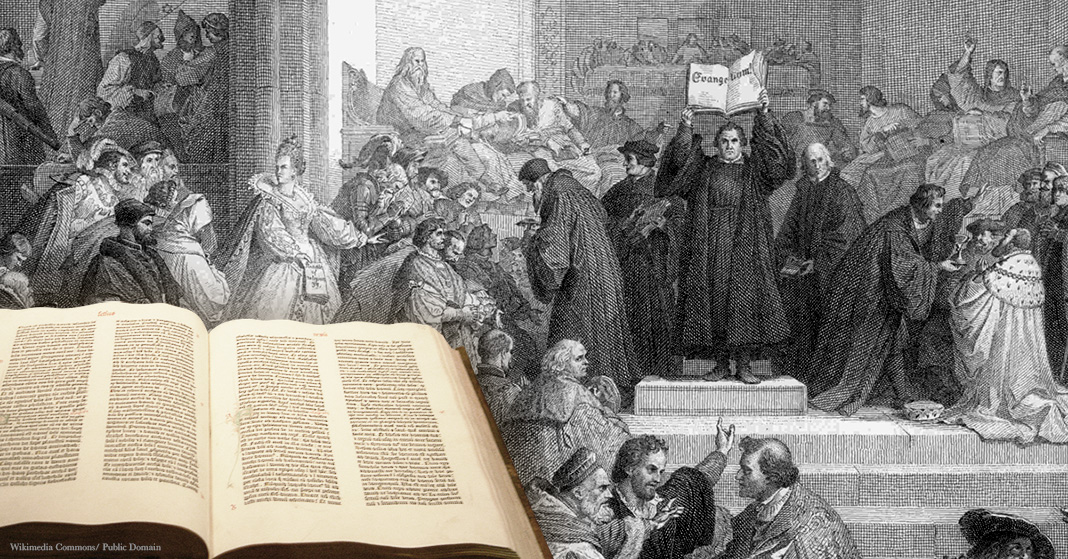
In our homeschool, we’ve been talking for a year now about how we’ll celebrate the five-hundredth anniversary of the beginning of the Reformation. We want our children, even at a very young age, to mark this milestone in the spread of the gospel. When Martin Luther issued his Ninety-Five Theses for debate, he probably had little idea what influence he would have on all of Western culture.
There’s so much I want my four little girls to know about the Reformation and how much God has blessed us through men He used to recover the Five Solas. We usually relate blessings from the Reformation to biblical doctrine, but there were also significant advances in education.
One area our secular society rarely acknowledges is the impact the reformers had on education. The reformers transformed the way Western civilization thinks about education—a transformation that reaches all the way to us today. And it’s a legacy that I want my little girls to know and appreciate.
Education for Bible Reading
The reformers taught that knowing the Bible was foundational to knowing God fully. And if everyone was going to know God through His Word, they needed to know how to read. So the reformers began to emphasize education. They wanted people to have the basic skills for reading so they could know their God through Scripture.
Education for All
In Germany at the time of the Reformation, education was only for the nobility, the professional classes, and the clergy. That left most of the peasantry without basic literacy instruction. There was no general expectation that every child would learn to read. But Luther and others believed that everyone should know God through Christ. That meant everyone needed to be able to read the Bible for themselves.
Although Luther didn’t come up with the idea of education for all, which is sometimes called universal education, his advocacy and influence contributed to making education for every child a priority in Western culture, so much so that some writers call him the inventor of modern education.
Education for Girls
As a father of daughters, I’m so grateful that when the reformers urged universal education they meant everyone, including women. Previously, women had been left out of education as far back as the Greeks and the Romans. The medieval church also left girls out when it came to education. But reformers such as Luther and Calvin recognized that women need to know God through His Word too. So they taught and practiced educating girls in reading and doctrine.
I want my daughters to know that, in large part, Western civilization’s emphasis on educating girls like them came from the reformers. And the reformers wanted girls to have the gift of education so they could read their Bibles.
Education by Parents
John Calvin picked up on the centrality of parents to their children’s education. Like homeschoolers today, he saw that Deuteronomy 6:7 teaches parents that it’s their duty to teach their children. He insisted that parents take responsibility for their children’s education and that religious morality should be a central aim of their learning.
We are so blessed to live in the shadow of the reformers. In one sense, my personal commitment to Christian homeschooling came from my parents. In another sense, each of us is an inheritor of a five-hundred-year-old tradition of training every child to read so that he or she can know God.
I’m not sure what celebrations my family is going to participate in for the anniversary of the reformation, but every day that you and I homeschool our children we’re paying tribute to these men’s efforts.
 If you’re a homeschooler, you’ve probably often been asked, “What about socialization?” Both the skeptical and the concerned like to broach that question. Sometimes it takes a more subtle form: “Are your children involved in sports?” I suspect that some people ask me that just to make sure that my children have interactions with other human beings. Well, of course, they do!
If you’re a homeschooler, you’ve probably often been asked, “What about socialization?” Both the skeptical and the concerned like to broach that question. Sometimes it takes a more subtle form: “Are your children involved in sports?” I suspect that some people ask me that just to make sure that my children have interactions with other human beings. Well, of course, they do!

